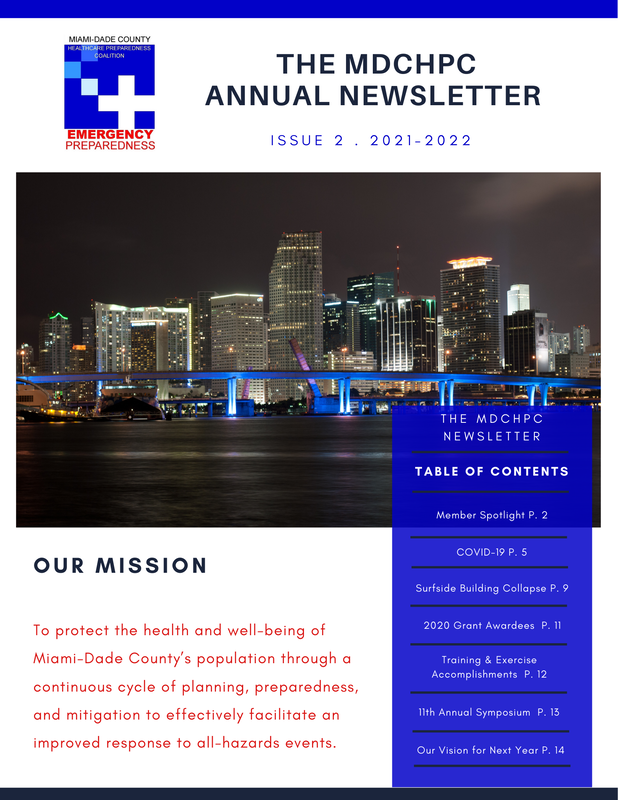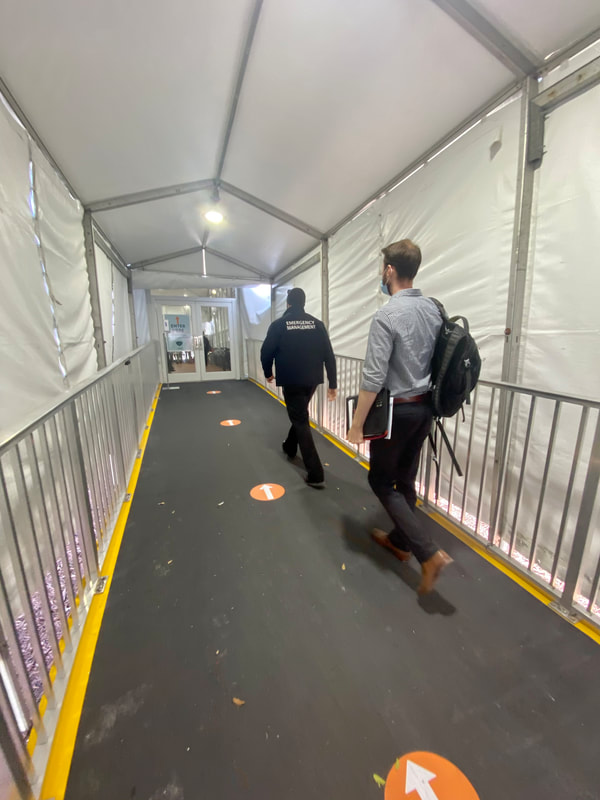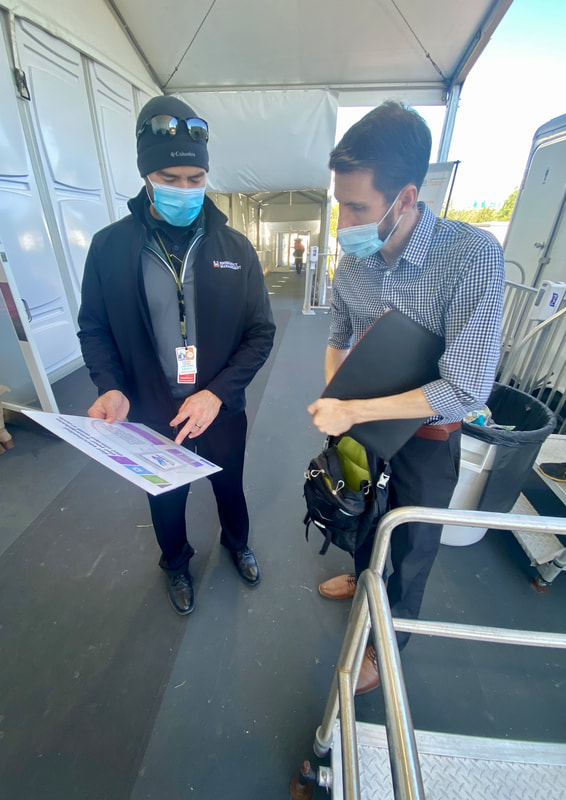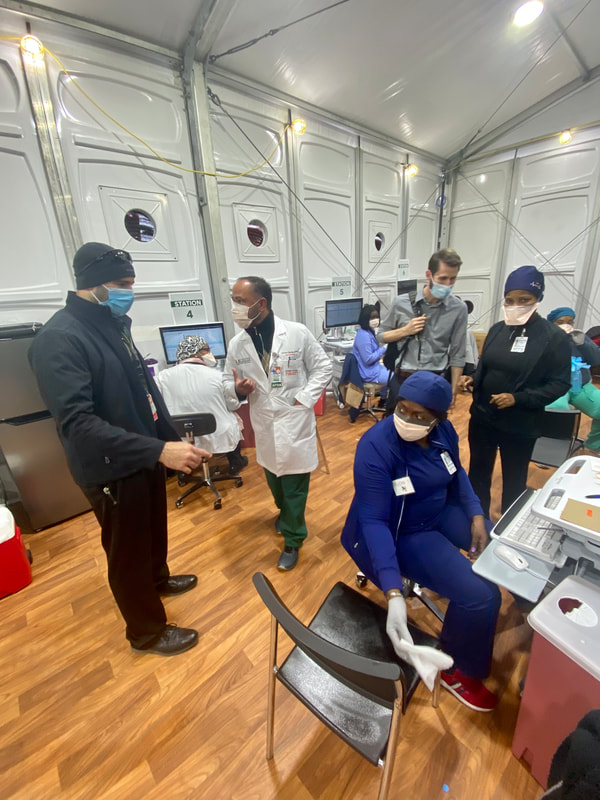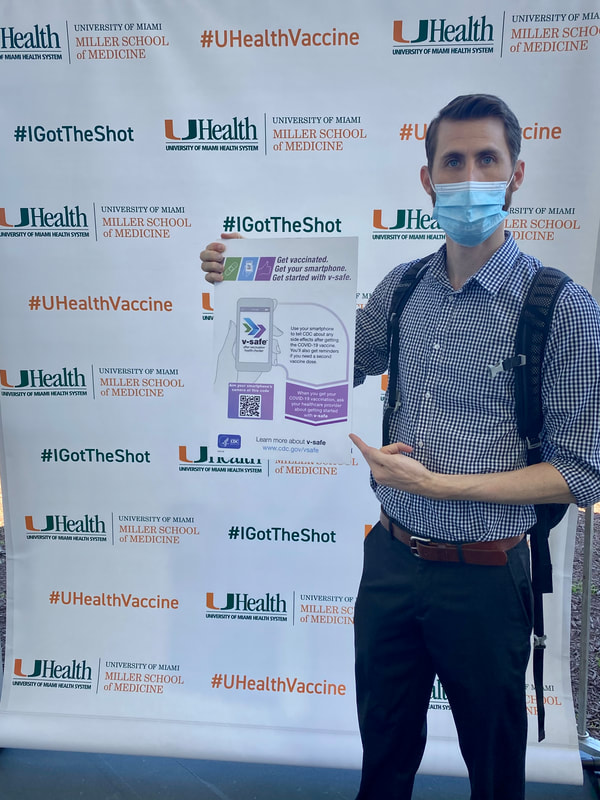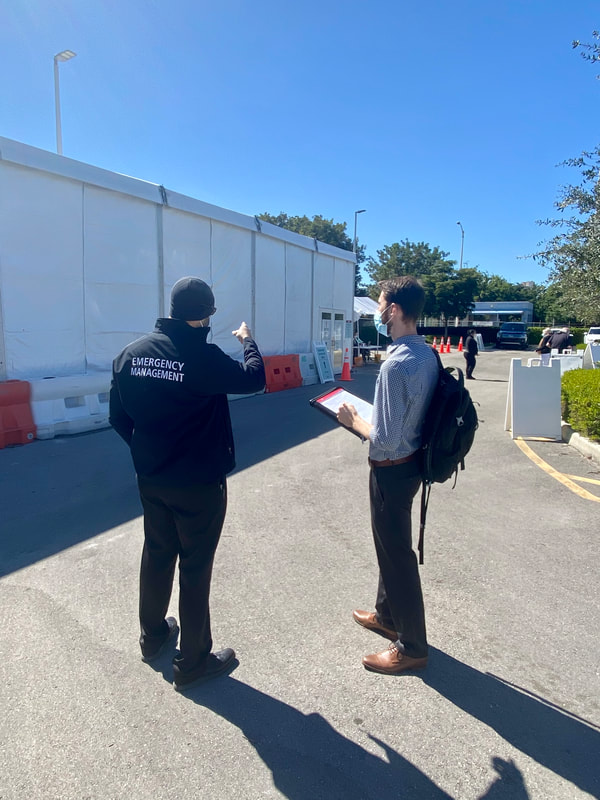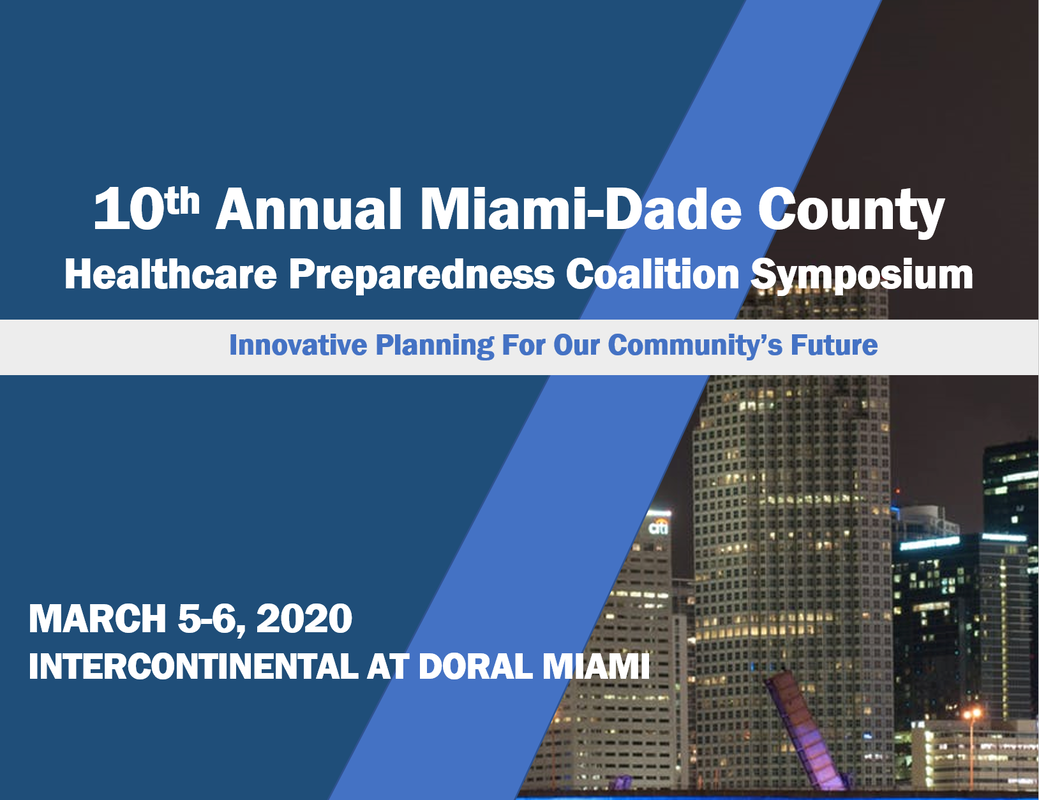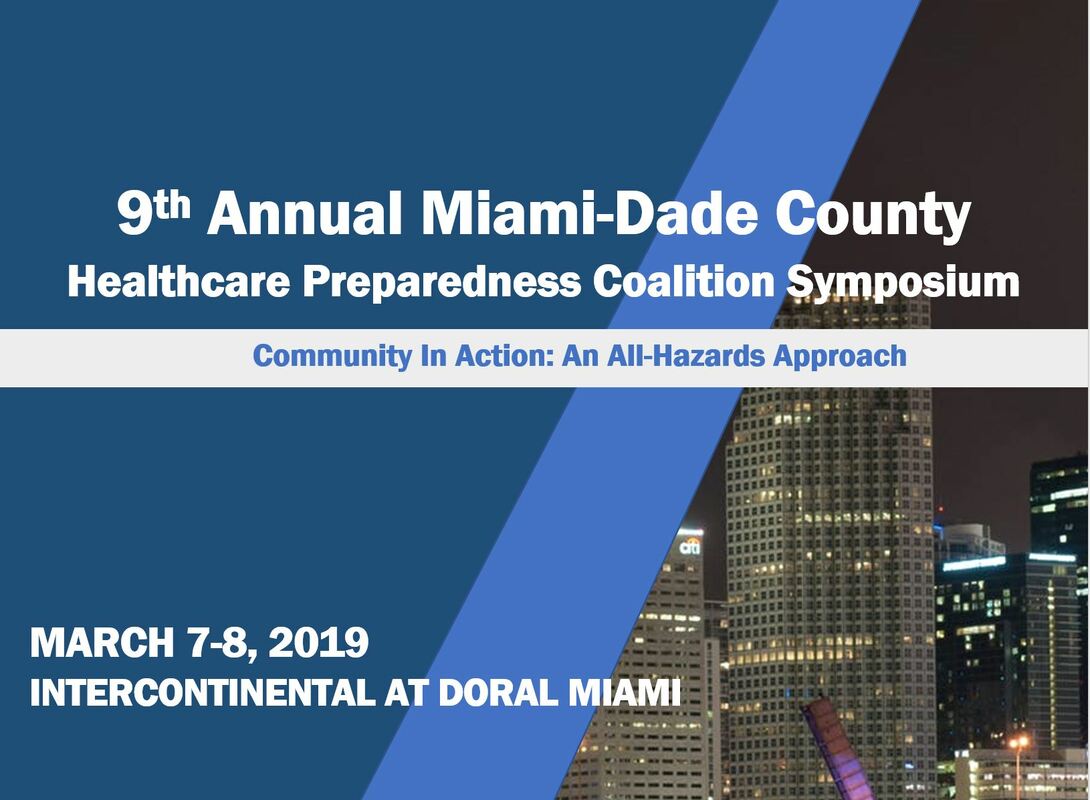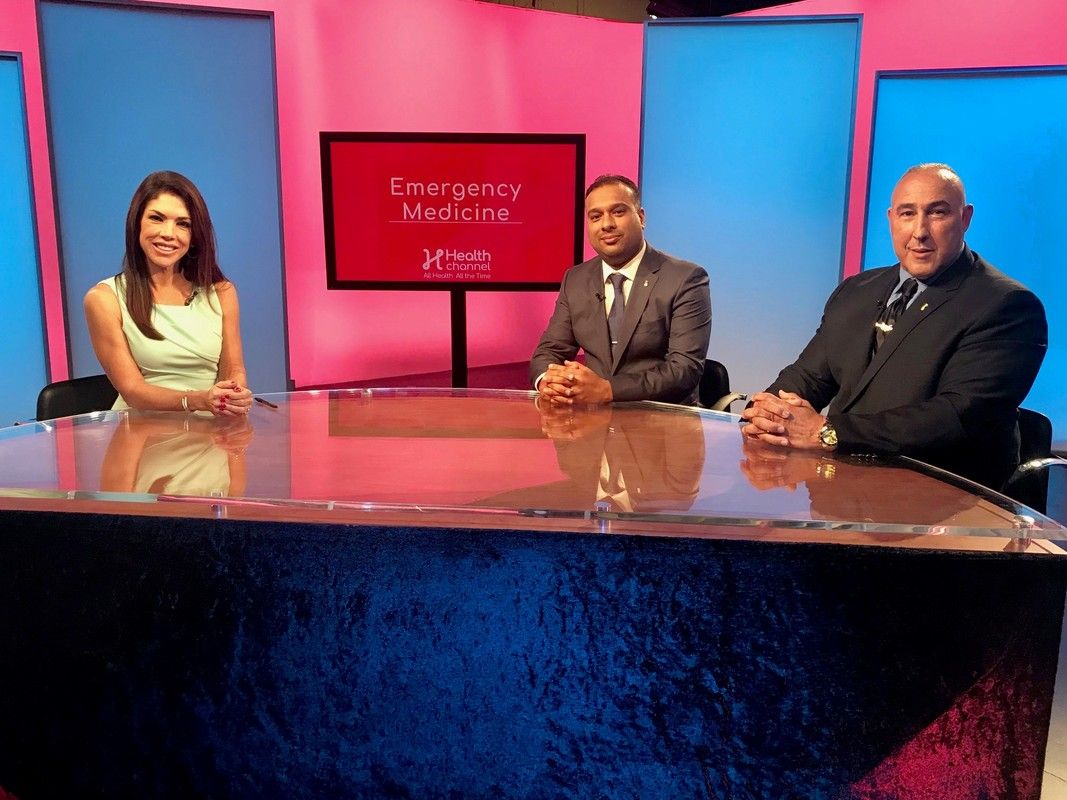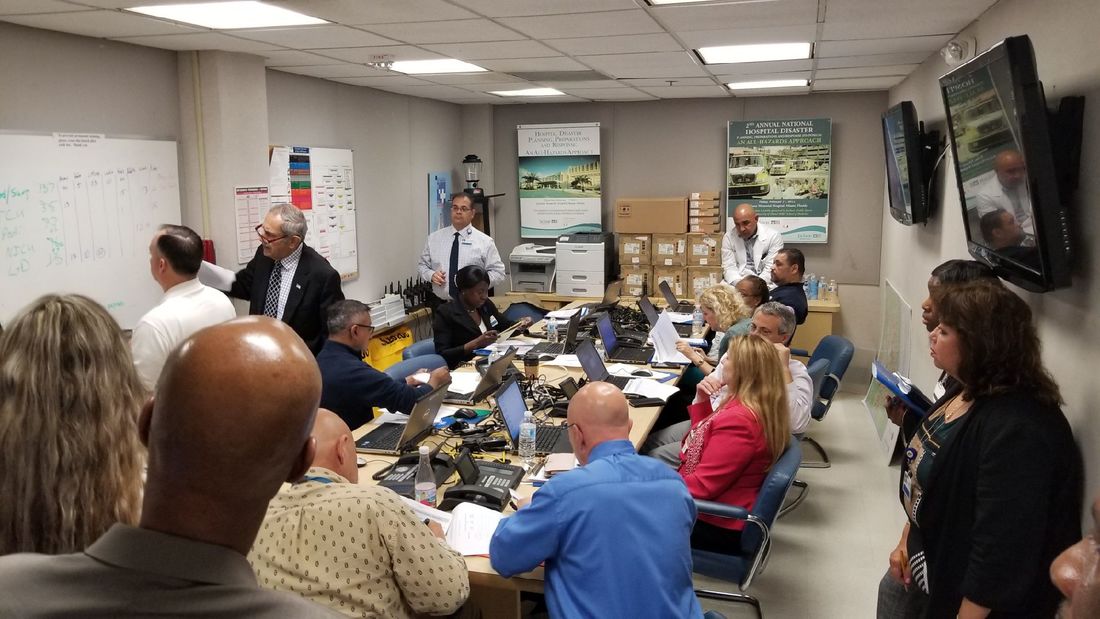Community News
2024 MDCHPC Symposium - Registration Opening Soon!
The Miami-Dade County Healthcare Preparedness Coalition will be hosting it's "14th Annual Miami-Dade County Healthcare Preparedness Coalition Symposium - Mitigating Emerging Threats Through Preparedness" on April 9-11, 2024 at the InterContinental Doral Miami. Vendor Registration is Open and Attendee Registration will be opening soon! We hope to see you there! Please visit the event site HERE
MDCHPC Annual Newsletter
MDCHPC Symposium - Registration Now Open
The Miami-Dade County Healthcare Preparedness Coalition will be hosting it's "11th Annual Miami-Dade County Healthcare Preparedness Coalition Symposium - When Crisis is Commonplace - Reimagining Community Preparedness" VIRTUALLY on April 1 and April 2, 2021. For more information including agenda, speakers, and registration, please visit the event site HERE
Member Spotlight: University of Miami Healthcare System
This past week the MDCHPC staff was invited to visit the UHealth Vaccination Site for a tour of operations in an effort to better understand the hospital response to the COVID-19 Pandemic as well as the Vaccination effort. Riley Tuff, our Training and Exercise Coordinator was given a tour by UHealth's Emergency Management Director Vincent Torres and his staff.
The entire operation features an all-hands-on-deck approach where each department works diligently with one another to have this site run smoothly. The entire UHealth team has done a fantastic job at expanding on their vaccination efforts and their commitment to community, staff, and patient health clearly shows.
For more information on the UHealth vaccination effort, please visit their site https://umiamihealth.org/coronavirus/covid-19-vaccine. If you are a UHealth patient and would like to access your MyUHealthChart account, please visit myuhealthchart.com or by downloading the MyChart app from the App Store or Google Play.
The entire operation features an all-hands-on-deck approach where each department works diligently with one another to have this site run smoothly. The entire UHealth team has done a fantastic job at expanding on their vaccination efforts and their commitment to community, staff, and patient health clearly shows.
For more information on the UHealth vaccination effort, please visit their site https://umiamihealth.org/coronavirus/covid-19-vaccine. If you are a UHealth patient and would like to access your MyUHealthChart account, please visit myuhealthchart.com or by downloading the MyChart app from the App Store or Google Play.
Website Updates - Coming Soon
As our Coalition has adapted to the COVID-19 pandemic, so soon will our website. Keep an eye out for a new "Training and Exercise" page, updated calendar of meetings, additional resources, and a more developed Member Page.
The Miami-Dade County Healthcare Preparedness Coalition is very proud to announce our "10th Annual Miami-Dade County Healthcare Preparedness Coalition Symposium - Innovative Planning For Our Community's Future" on March 5-6, 2020. For additional information, such as the agenda, location, speakers, and registration, please visit the event site Here
MDCHPC Getting Super Bowl LIV Ready
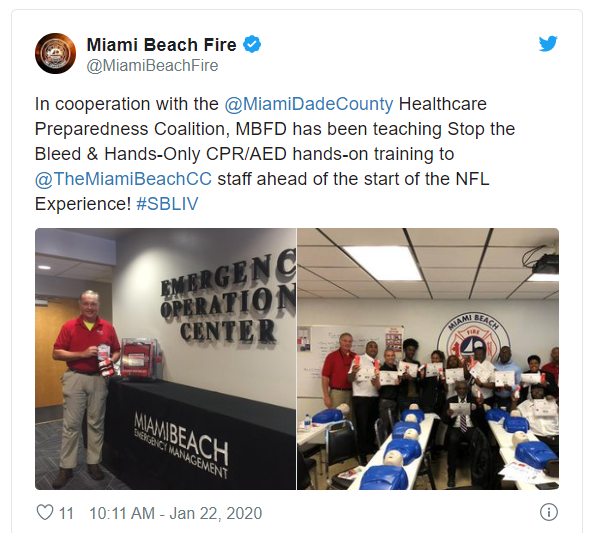
As the host city of Super Bowl LIV, the municipalities within Miami-Dade County have been hard at work to ensure that our county is prepared for the myriad of activities and events leading up to and including the big game. The Miami-Dade County Healthcare Preparedness Coalition together with Miami Dade Fire Rescue, Miami Beach Fire Rescue, and our cadre of instructors are working tirelessly to train as many hands as possible to Stop The Bleed.
We thank our partners at Miami Beach Fire Rescue, Miami Dade Fire Rescue, City of Miami Fire Rescue, the Office of Emergency Management, ESF-8, and partner Hospitals for their tireless work.
As always, our greatest thanks go out to our Stop the Bleed trainers and our Security & Intelligence Committee Co-chairs. Vincent Torres (UHealth) and Jesus "Jessie" Menocal (Baptist Health South Florida) continue to spearhead our Stop The Bleed Program. Should you wish to provide this training at your facility, please feel free to contact us.
We thank our partners at Miami Beach Fire Rescue, Miami Dade Fire Rescue, City of Miami Fire Rescue, the Office of Emergency Management, ESF-8, and partner Hospitals for their tireless work.
As always, our greatest thanks go out to our Stop the Bleed trainers and our Security & Intelligence Committee Co-chairs. Vincent Torres (UHealth) and Jesus "Jessie" Menocal (Baptist Health South Florida) continue to spearhead our Stop The Bleed Program. Should you wish to provide this training at your facility, please feel free to contact us.
MDCHPC Stop the Bleed Classes are Now Open for Registration!
The Miami-Dade County Healthcare Preparedness Coalition is proud to announce that we will be hosting FREE 2 hour Stop the Bleed Training Courses. There are multiple dates and classes will be added as we go along. If you'd like to register, please visit our calendar page. Classes are open to Healthcare Workers, Academia (K-12 and Universities), and houses of worship. If you are an employee or associated with a host site, please register under the "employee" section. You do not need to be an employee of a host site to take a class there.
Space is limited.
Every individual who completed the training will receive a tourniquet and the host site will receive a bleeding control station with 8 individual kits (while supplies last).
If you would like to host a class in the future, please email Vincent Torres or Jesus Menocal. There is no cost associated with hosting a course, we would just need ample space.
Space is limited.
Every individual who completed the training will receive a tourniquet and the host site will receive a bleeding control station with 8 individual kits (while supplies last).
If you would like to host a class in the future, please email Vincent Torres or Jesus Menocal. There is no cost associated with hosting a course, we would just need ample space.
Your browser does not support viewing this document. Click here to download the document.
Coalition-Sponsored First Responder's Toolbox Roll Call Video featured in the National Center for Campus Public Safety's Weekly Snapshot!
You can read the entire document here: myemail.constantcontact.com/Weekly-Snapshot--July-17--2019.html?soid=1117796635558&aid=N7rbkFG-7SA
Healthcare Facilities Preparedness
Many universities are integrated with robust healthcare facilities on campus. Some examples include the University of Alabama Hospital at Birmingham, University Medical Center at Princeton, University of Pittsburgh Medical Center, and the University of Vermont Medical Center. These medical centers serve the needs of patients and their families 24 hours a day, seven days a week and need to maintain a continuity of care and operations no matter the circumstances. Because of this "duty-to-care" commitment, hospitals and healthcare facilities face unique challenges when planning and responding to critical incidents.
A survey of more than 300 respondents conducted by Rave Mobile Safety found a significant difference in what healthcare facilities believe are their top safety concerns and the reality of what actual incidents are most likely to occur. Survey participants noted that their top incident concerns are:
The most common actual incidents are:
The U.S. Department of Homeland Security (DHS) has confirmed that between 2000-2017, hundreds of hospital-related shootings took place, yet 33 percent of survey respondents had never run workplace violence drills. Further, 25 percent who had experienced workplace violence had no method to report tips anonymously to their employer. DHS developed Hospital and Healthcare Facilities: Security Awareness for Soft Targets and Crowded Places(PDF), an action guide to help medical facilities identify potential warning signs of violence and proactive steps to prepare in case of an active shooter.
The Miami-Dade County Healthcare Preparedness Coalition has compiled emergency preparedness resources for active shooters, hurricanes, and health/healthcare facilities. In addition, the Joint Counterterrorism Assessment Team has included the Complex Operating Environment - Healthcare Facilities (PDF) as part of its First Responders Toolbox. This document highlights different areas of a medical facility and why they may need additional planning and response considerations. It also includes pre-incident planning and coordination, critical facility functions, communications, and additional materials.
Most importantly, the U.S. Department of Health and Human Services Office of the Assistant Secretary for Preparedness and Response (ASPR) launched the Technical Resources, Assistance Center, and Information Exchange (TRACIE) two years ago. TRACIE was developed to meet the information and technical assistance needs of regional ASPR staff, healthcare coalitions, healthcare entities, healthcare providers, emergency managers, public health practitioners, and others working in disaster medicine, healthcare system preparedness, and public health emergency preparedness. The technical resources section in particular contains information on workplace violence, family reunification, cybersecurity, evacuations, and much more. For more information on TRACIE or the ASPR, please view the fact sheet (PDF).
Healthcare Facilities Preparedness
Many universities are integrated with robust healthcare facilities on campus. Some examples include the University of Alabama Hospital at Birmingham, University Medical Center at Princeton, University of Pittsburgh Medical Center, and the University of Vermont Medical Center. These medical centers serve the needs of patients and their families 24 hours a day, seven days a week and need to maintain a continuity of care and operations no matter the circumstances. Because of this "duty-to-care" commitment, hospitals and healthcare facilities face unique challenges when planning and responding to critical incidents.
A survey of more than 300 respondents conducted by Rave Mobile Safety found a significant difference in what healthcare facilities believe are their top safety concerns and the reality of what actual incidents are most likely to occur. Survey participants noted that their top incident concerns are:
- Severe weather (36 percent)
- Active shooters (34 percent)
- Cyberattacks (32 percent)
The most common actual incidents are:
- System outages (54 percent): 32 percent who experienced outages said their facility had never run a drill.
- Weather events (52 percent): approximately half of respondents noted they had experienced a dangerous weather-related event within the past two years and 51 percent reported that their facility had gone more than one year without testing their weather-related emergency operating plans.
- Workplace violence (27 percent)
The U.S. Department of Homeland Security (DHS) has confirmed that between 2000-2017, hundreds of hospital-related shootings took place, yet 33 percent of survey respondents had never run workplace violence drills. Further, 25 percent who had experienced workplace violence had no method to report tips anonymously to their employer. DHS developed Hospital and Healthcare Facilities: Security Awareness for Soft Targets and Crowded Places(PDF), an action guide to help medical facilities identify potential warning signs of violence and proactive steps to prepare in case of an active shooter.
The Miami-Dade County Healthcare Preparedness Coalition has compiled emergency preparedness resources for active shooters, hurricanes, and health/healthcare facilities. In addition, the Joint Counterterrorism Assessment Team has included the Complex Operating Environment - Healthcare Facilities (PDF) as part of its First Responders Toolbox. This document highlights different areas of a medical facility and why they may need additional planning and response considerations. It also includes pre-incident planning and coordination, critical facility functions, communications, and additional materials.
Most importantly, the U.S. Department of Health and Human Services Office of the Assistant Secretary for Preparedness and Response (ASPR) launched the Technical Resources, Assistance Center, and Information Exchange (TRACIE) two years ago. TRACIE was developed to meet the information and technical assistance needs of regional ASPR staff, healthcare coalitions, healthcare entities, healthcare providers, emergency managers, public health practitioners, and others working in disaster medicine, healthcare system preparedness, and public health emergency preparedness. The technical resources section in particular contains information on workplace violence, family reunification, cybersecurity, evacuations, and much more. For more information on TRACIE or the ASPR, please view the fact sheet (PDF).
Coalition-Sponsored First Responder's Toolbox Roll Call Video featured in JCAT Newsletter!
Your browser does not support viewing this document. Click here to download the document.
In 2018 after completing their Full Scale Active Shooter Exercise, our longtime member and partners at the University of Miami Health System (UHealth) approached Coalition Leadership with a project to produce a Roll Call training video based on the First Responder's Toolbox. The First Responder's Toolbox, a document created by a multidisciplinary group, including representatives from UHealth, not only provides education to first responders on the hazards and special considerations present when responding to an active shooter or hostile event in the healthcare environment, but helps to establish working partnerships between healthcare facilities and their jurisdictional partners in Police, Fire Rescue, and Rescue Task Force.
The Roll Call video is available in the Resources section of the website now! To protect its contents, the video is password protected.
The Roll Call video is available in the Resources section of the website now! To protect its contents, the video is password protected.
Recap: 9th Annual Miami-Dade County Healthcare Preparedness Coalition Symposium
The 9th Annual MDCPC Symposium, held on March 7-8 this year has been a rousing success! With over 200 participants from disciplines across emergency preparedness in Healthcare, Police, Fire Rescue, and Office of Emergency Management, the coalition saw a successful transition of the Symposium from our long-time members and partners at Jackson Health System. This two day Symposium saw animated and insightful presentations from a host of impressive speakers.
The Coalition would like to thank our Event Sponsors
Petroleum Recovery Services
ILC Dover
MedSled
Rave Mobile Safety
Hot Zone
3M
Florida Healthcare Association
Jackson Health Systems
Florida Poison Center
The Coalition would like to thank our Event Sponsors
Petroleum Recovery Services
ILC Dover
MedSled
Rave Mobile Safety
Hot Zone
3M
Florida Healthcare Association
Jackson Health Systems
Florida Poison Center
The Miami-Dade County Healthcare Preparedness Coalition is very proud to announce our "9th Annual Healthcare Preparedness Coalition Symposium - Community In Action: An All-Hazards Approach" on March 7-8, 2019. For additional information, such as the agenda, location, speakers, and registration, please visit the event site HERE
On September 20, 2018, Raj Maragh and Jessie Menocal from the Department of Emergency Preparedness & Security for Baptist Health South Florida were invited to participate in a one hour live show on the Health Channel, which focused on Emergency Preparedness. Some of the key areas discussed were the steps that are being taken by hospitals in our region to stay prepared for the next natural, man-made, or technological disasters and programs that are being implemented by our hospitals, schools and other public spaces in our region to prepare for an Active Shooter situation. The episode also gave Raj and Jessie the opportunity to provide insights on the important work that is being done right here by the Miami-Dade County Hospital Preparedness Coalition.
About Training/Exercise
Throughout the year, the MDCHPC provides its members opportunities to share and participate in training and exercises. One coalition-led exercise is the Coalition Surge Tool Exercise, a multi-facility medical surge and evacuation exercise. Last year's exercise saw the simulated movement of over 1200 patients. To read more about training and exercises brought to the coalition, please feel free to read out 2017-2018 report.

